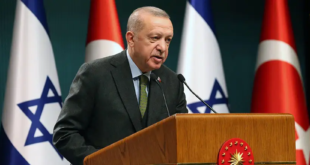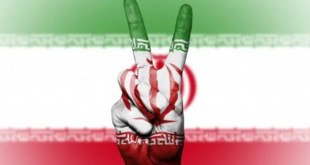BAGHDAD (AP) — The US ambassador and top American commander in Iraq are set to leave their jobs with the country’s security arguably no better than when they arrived, and they cautioned Monday against expecting significant success in quelling the violence soon.
“As with any plan, there are no guarantees of success, and it’s not going to happen overnight but with sustained political support and the concentrated efforts on all sides I believe that this plan can work,” the commander, Gen. George Casey, said at a news conference.
He said he did not expect significant results until the summer and fall, for the first time putting a timeframe around the new plan, nearly a week after US President George W. Bush announced he was sending 21,500 more American troops to Iraq, 17,500 of those to Baghdad.
Casey said the security drive might take months to show results.
“I think you’ll see a gradual evolution over the next two to three months, and then you’ll see things continue to get better up through the summer and fall. It’ll take some time,” he said.
The general said the new troops already had begun to arrive but he declined to elaborate on the timing for the operation to start.
“I don’t want to talk too much about troop movements, but the initial elements of the first group are already here,” he said, adding that reports that 4,000 US troops had reached Baghdad were “a little high”. US Ambassador Zalmay Khalilzad, who joined Casey at the podium, said Washington was not imposing deadlines on the Iraqi government.
“The statement that has been made about the urgency for action… reflects this doubt or concern that exists in many places whether the Iraqis and Iraq leadership will decide to do what’s necessary,” he said. “And as I said, I personally — based on what I have seen in the last few weeks, I’m encouraged.” But he also said he understood why Iraqis were wary about putting their faith in another security operation — the third aimed at restoring peace in the capital since Iraqi Prime Minister Nouri Maliki took office in May.
“I can understand and empathise with the Iraqi people.
They certainly have suffered a lot. And they’ve heard positive predictions before, and all of that is true,” he said. “But I want them to know that those predictions made before… were made with the best of intentions, with good plans developed based on understanding of the circumstances of the time,” he said.
He and Casey stressed that this plan was different because it had a stronger commitment from the Iraqi leadership, and because of assurances that no areas of Baghdad would be allowed to serve as sanctuaries for gunmen, a direct reference to past interference on the part of Maliki to protect the Mehdi Army of Shiite cleric Moqtada Sadr, one of the Iraqi leader’s key political backers.
“No militia will be a replacement for the state or control local security,” the ambassador said. The military commanders will have freedom of action and the ability to do what’s needed without political interference or micro-management. They won’t be told, ‘Don’t do this. Don’t go into this or that neighbourhood.’ Therefore it will be fair.” The responses mirrored what other US officials have said in defence of Bush’s plan to send more troops against a wave of criticism in the United States, with many in the Democratic-controlled Congress favouring a phased withdrawal of American troops, along with new diplomatic efforts with Iraq’s neighbors.
Casey, who also will cede command of US forces to Lt. Gen. David Petraeus, and Khalilzad did not offer much new information in the face of probing questions from the Baghdad press corps.
Casey dismissed reports about disagreements between Iraqi and US officials over the command structure of the operation to curb sectarian violence in Baghdad, although Iraqi officials said many hotly disputed issues were unresolved.
He asserted that Maliki had approved the insertion of 21,500 new American troops into Iraq and would be consulted on all future US troop additions or withdrawals. But at the same time, he pledged that “American forces will remain under American command, period, no issues.”
“Our forces, frankly, will not be at greater risk, although the more forces you bring here, the greater the risk of casualties to our forces. But they won’t be put at risk because of the command relationships,” he said.
 Eurasia Press & News
Eurasia Press & News



